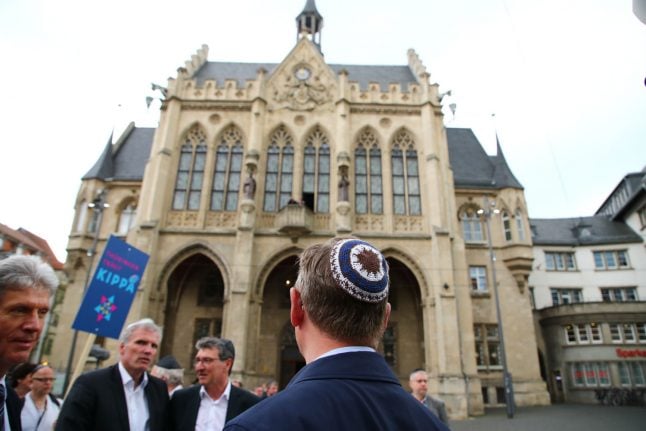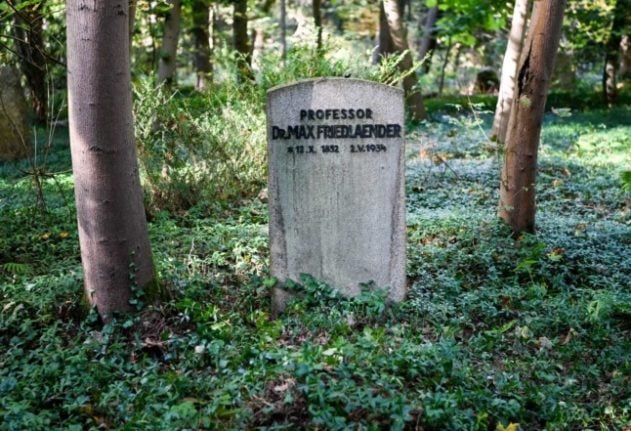At the weekend, Felix Klein, the country's commissioner on anti-Semitism sparked uproar when he said in an interview with the Funke regional press group that he could not “advise Jews to wear the kippa everywhere all the time in Germany.”
Israeli President Reuven Rivlin voiced shock at Klein's warning and said it was a “capitulation to anti-Semitism” and evidence that Jews are unsafe in Germany.
SEE ALSO: Jews warned against wearing kippa in Germany
Late Monday, Klein reversed course after Chancellor Angela Merkel's spokesman intervened.
“The state must see to it that the free exercise of religion is possible for all… and that anyone can go anywhere in our country in full security wearing a kippa,” Steffen Seibert told a press conference.
In his latest statement to Funke, Klein said: “I call on all citizens of Berlin and across Germany to wear the kippa next Saturday if there are new, intolerable attacks targeting Israel and Jews on the occasion of al-Quds day in Berlin.”
Al-Quds is an annual event against Israeli control of Jerusalem and will take place on Saturday.
Klein also addressed his earlier statements, saying that he “could no longer recommend that Jews wear the kippa everywhere in Germany should be taken as an alarm signal.”
Earlier Monday, German daily Bild published a cut-out-and-use kippa in a bid to fight rising anti-Semitism.
Bild, Germany's top-selling daily newspaper, called on readers to “stand in solidarity with (their) Jewish neighbours” by making “their own kippa”, bearing the star of David, to “raise the flag against anti-Semitism”.
SEE ALSO: German newspaper Bild prints cut-out kippa to fight anti-Semitism
Germany, like other Western countries, has watched with alarm as anti-Semitic and other racist hate speech and violence have increased in recent years while the political climate has coarsened and grown more polarized.
Anti-Semitic crimes rose by 20 percent in Germany last year, according to interior ministry data which blamed nine out of 10 cases on the extreme right.
The arrival in parliament of the far-right AfD party, whose leaders openly question Germany's culture of atonement for World War II atrocities, has also contributed to the change in atmosphere.
Merkel has also deplored “another form of anti-Semitism” stemming from a major asylum-seeker influx, with many coming from Muslim countries like Syria, Afghanistan or Iraq.
The Central Council of Jews in Germany has already issued several warnings about wearing the kippa in public.
In one prominent case last year, a 19-year-old Syrian man was convicted for assault after lashing out with his belt at an Israeli man wearing a Jewish skullcap while shouting “yahudi”, Jew in Arabic.
SEE ALSO: Video of alleged anti-Semitic attack in central Berlin sparks outrage



 Please whitelist us to continue reading.
Please whitelist us to continue reading.
Member comments